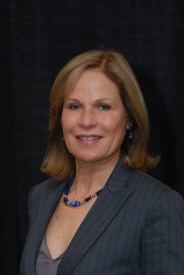 If you attended this year’s 100% virtual Visionary Conference on May 17 th, then you already know about the amazing research presented by perennial audience favorites Dr. Martha S. Burns and Scientific Learning co-founder Dr. Paula Tallal. But if you happened to miss it, you’re in luck—because we’ve captured all of the conference sessions so you can watch them at your convenience and catch up.
If you attended this year’s 100% virtual Visionary Conference on May 17 th, then you already know about the amazing research presented by perennial audience favorites Dr. Martha S. Burns and Scientific Learning co-founder Dr. Paula Tallal. But if you happened to miss it, you’re in luck—because we’ve captured all of the conference sessions so you can watch them at your convenience and catch up.
Find the links to the research presentations below, along with links to additional sessions full of practical information for clinical providers in support of this year’s theme, Growing Together.
What’s New in Neuroscience?
In a jam-packed session, Dr. Martha Burns took conference attendees on a fascinating tour of trends and milestones in recent neuroscience. She reviewed years of foundational research underlying detailed maps of the neuronal connectivity of the brain that today we call “connectomes.” She then covered recent studies revealing the semantic map of the human brain, with words and word meanings mapped hierarchically over the cortex. She wrapped up with details about specific connectomes within the brain, the cognitive domains controlled by each (from a speech-language perspective, those governing attention and flexibility are particularly interesting), and symptoms related to dysfunction within a connectome. Advances in connectome research, according to Dr. Burns, point to new possibilities for evolving the clinical application of Fast ForWord program technology.
New Research with College Students
Dr. Paula Tallal’s session presented revolutionary new research using the Fast ForWord program with college students. The studies sought to determine whether college students using Fast ForWord would show improvements in attention, reading, and writing. Results were impressive, with significant improvements not only in attention and reading, but in writing as well. Dr. Tallal went into detail about the design and results of each study, so you will want to watch the presentation to fully understand the implications of this exciting new peer-reviewed research.
Product Updates and Enhancements
Every year, we look forward to sharing the recent and planned product enhancements with our providers at the Visionary Conference. This year, Ching Lee and Joan Ferguson of Scientific Learning gave online walk-throughs of product and reporting enhancements for both the Fast ForWord and Reading Assistant programs. Their session is a must-watch for any provider looking to stay current with product and reporting features, as well as those who are curious about future enhancements currently in the works.
Connecting Fast ForWord to Reading Assistant
Using the Fast ForWord and Reading Assistant programs together can be a powerful treatment approach for children and a strong marketing differentiator for private providers. Speech Language Pathologist Beverly Gough’s session focused on strategies and techniques for blending the Fast ForWord and Reading Assistant programs in private practice. She walked through a number of clinical scenarios and answered audience questions, providing a wealth of valuable information mined from her years of professional experience as a Scientific Learning provider.
Growing Together: Maximizing Your Reach
Finally, attendees heard from Speech Language Pathologist Renee Matlock about how to reach more students and grow a clinical practice through offsite implementation and general marketing best practices. Ms. Matlock is a recipient of the Scientific Learning Sustained Excellence Award marking the highest quality of implementation of Fast ForWord for more than 10 years. After the release of MySciLEARN®, Ms. Matlock found that parents preferred the ease of having their children work on Scientific Learning products from home. She proceeded to transform her business into a 100% offsite practice, and generously shared her learning at the Visionary with all Scientific Learning Providers. It’s the perfect session for any provider looking to grow their practice—so be sure to watch and learn!
Related reading:
Human Intelligence and the Brain: Mapping Intellectual Ability
How are Reading Skills Related to White Matter in the Brain (and Why Does It Matter)?
5 Reasons Why Your Students Should Write Every Day

